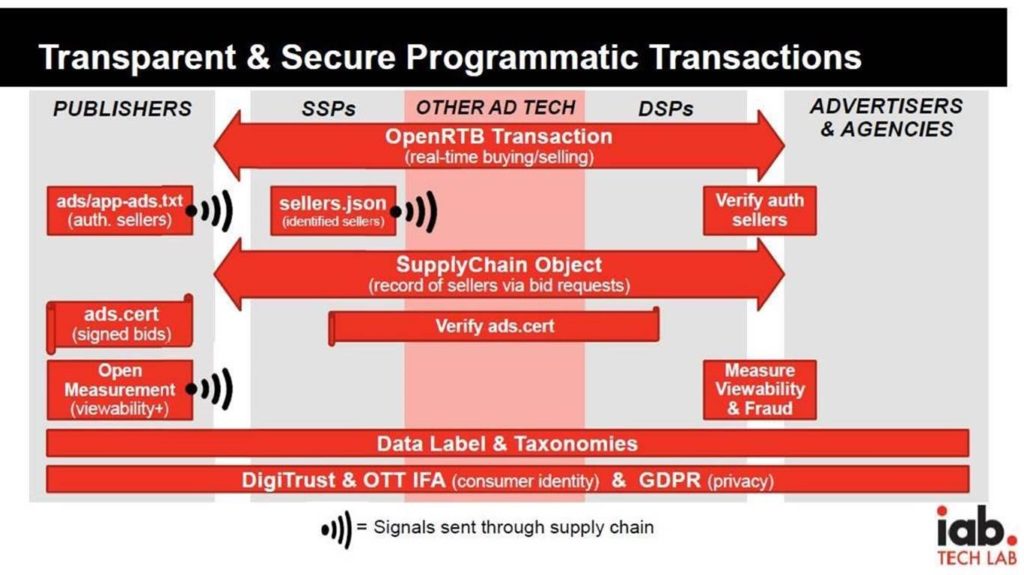Industry Progress Needs Collaboration, Innovation, and Engagement
by Mathew Broughton on 3rd Oct 2019 in News

Writing exclusively for ExchangeWire, Jonas Jaanimagi, technology lead, IAB Australia discusses why recent initiatives from IAB Tech Lab need to be adopted by all parties, in order to address the contemporary challenges facing the advertising industry.
Many see the digital advertising market as currently going through difficult times, but to be honest I often feel that it ‘was ever thus’ and that the challenges (and opportunities) we face, whilst always critical at the time, are simply perpetually changing. Any businesses and people that cannot, or will not, adapt and collaborate - will always struggle.
With this backdrop, it’s important that we can always collectively adopt a steady, sensible and constructive approach to any changes. For the more technically inclined, this steady influence has often been the efforts of the IAB Tech Lab. Quietly working away, most-often in the background, on global standards that effectively act as solutions engineered to resolve global issues in a consistent manner - and with a product roadmap in core areas that should give everyone hope. It’s why IAB Australia has been liaising so closely and directly with IAB Tech Lab over the last 12-18 months or so, and will continue to do so moving forward.

Jonas Jaanimagi, Technology Lead, IAB Australia
However, mutually we all have a significant pain-point: the absence of a full global commitment to the community-based, collaborative and innovative approach that is essential to drive adoption of these standards - and which in turn will guarantee our collective progress.
Awareness and education are important starting points, but it’s the active engagement and adoption by us all that will truly make meaningful differences.
Building the foundations of trust and transparency in programmatic trading
For instance, over the last 18 months IAB Tech Lab has been working on various technical solutions and standards to improve the transparency, security and operational efficiency of programmatic trading, often treated as the bête noire of our industry and regularly blamed for the majority of our current struggles. An enormous amount of work is being done in this area with the RTB (real-time bidding) protocols related to the automated buying and selling of ads regularly reviewed, improved upon and updated. Currently these OpenRTB standards are on version 2.5, with version 3.0 recently released.
With full adoption of v3.0, we’ll all see significant improvements in both efficiency and transparency. Advertisers and agencies can use the combined data generated via these standards to understand and analyse what they’re buying and empower them to be more confident and comfortable in their future purchasing.
At a time when levels of trust are low and buyers are seeing regular scare stories regarding the quality of digital ad inventory, these recently released and forthcoming OpenRTB standards will play complementary roles to extend transparency for buyers throughout the entire supply chain, including SSPs and ad exchanges.
Set for future release and highly significant will be the authentication process standard, called ads.cert. This will be an important step forwards as it works by using cryptographically-signed bid requests to offer authenticated paths back to the inventory source. This will guarantee that the bid requests are certified and haven’t been modified, thereby dramatically reducing the risk of fraudulent ads appearing in any programmatic buying.
From education and awareness, to collaborative engagement and adoption
However, in order to ensure that these industry standards work effectively, widescale adoption is necessary, and persistent ongoing awareness, support and education of all sides of the advertising ecosystem (media owners, platforms, ad-tech, agencies and advertisers) is essential.
These will have to be pan-industry collaborative efforts. Standing on the side-lines and simply criticising is unacceptable - we will all have to get fully engaged and resolve this together.
Disappointingly though the entire marketplace continuously also still lags behind on its uptake of the most up-to-date templates used for ad-serving video, known as VAST (Video Ad-Serving Template). While the IAB Tech Lab’s latest released version is 4.2 - most in our industry are still using v3 and even more disturbingly many are still on v2 which is now over nine years old and poorly equipped to handle the realities of today’s technological requirements.
This slow speed of adoption has now reached crisis point and needs genuine attention. We would welcome a community-based push for both buyers and sellers to aggressively adopt VAST v4.x and for all vendors to prioritise this work in their roadmaps. We have proposed a phased rollout here in Australia in conjunction with the IAB Tech Lab.
The same is happening for the standardisation and simplification of audience data segments – via the Data Label initiative, and again we are pushing locally in Australia for awareness and adoption via a dedication participation programme, based upon the IAB Tech Lab’s Data Transparency Standards.
We just can’t sit by any longer. The adoption of standards such as these will be vital to the future success of the industry. Additionally, this type of unified approach will particularly critical for us all to navigate a path through the latest regulatory and technological changes that are affecting how we will all be managing identity, data and consumer privacy in the future. If we cannot come together to find workable collaborative solutions in this area, then government bodies will – and that undoubtedly won’t end well for anyone.
Get involved in resolving this together
It’s time for the industry to take leadership role by planning ahead collaboratively and driving a community-based approach to expediting the roll-outs of standards such as OpenRTB 3.0, VAST 4.x and Data Label – and participating in the vital current discussions and working groups related to identity, data and privacy.
Through embracing the latest standards and enabling the best practices in digital advertising we can build for the future success and growth of critical operational parts of our industry. It’s about everyone investing their time and efforts in the short term, for greater benefits for us all in the longer term.
For more information on some these standards and current industry proposals please see the links below.
- OpenRTB
- VAST 4.x (OMID & SIMID)
- Data Label
- IAB Tech Lab proposals for resolving identity, data and privacy
A summary of OpenRTB protocols

- ads.txt and app-ads.txt: ads.txt stands for Authorised Digital Sellers and is a simple, flexible and secure method that publishers and authorised partners can use to publicly declare the companies they have sanctioned to sell their digital inventory. App-ads.txt is an extension to ads.txt and is suitable for advertising within in-app environments on mobile and OTT (over-the-top), or any other app inventory.
- sellers.json: identifies the seller listed on the ads.txt file or app-ads.txt and supplies additional info such as the account numbers and associated publisher identities that operate via that seller.
- SupplyChain Object: enables buyers to see all the parties involved and that were paid as part of an impression opportunity from beginning to end. It works in conjunction with sellers.json to provide an additional layer of transparency into any multiple resellers, enabling buyers retrospectively review any entities involved in the selling or reselling of any bid requests. Acting as a record for every impression, Supply Chain Object empowers buyers to check for any fraudulent sellers/resellers and additionally know the final reseller in the chain.
- AdCOM: is the Advertising Common Object Model that describes the media objects that are bought and sold across any transactional protocol. The Common Object Model for Ads describes the ad, the creative, and the media channels that are traded over OpenRTB transactions.
- OpenData (due for final release in Q4 2019): is a standardised and consistent language for vendors, advertisers and publishers to utilise in all campaign reporting. This will provide publishers, agencies, and data management vendors with a common language and mapping tool intended to improve workflow in day-to-day campaign analytics processes.
- Ads.cert (due for release in 2020): utilises cryptographically-signed bid requests to authenticate the exchanges between buyer and seller at each stage of digital ad supply chain, ensuring that no information can be modified or altered. This will fully authenticate ad inventory in real-time to eradicate any risk of ad-fraud in programmatic buying.








Follow ExchangeWire